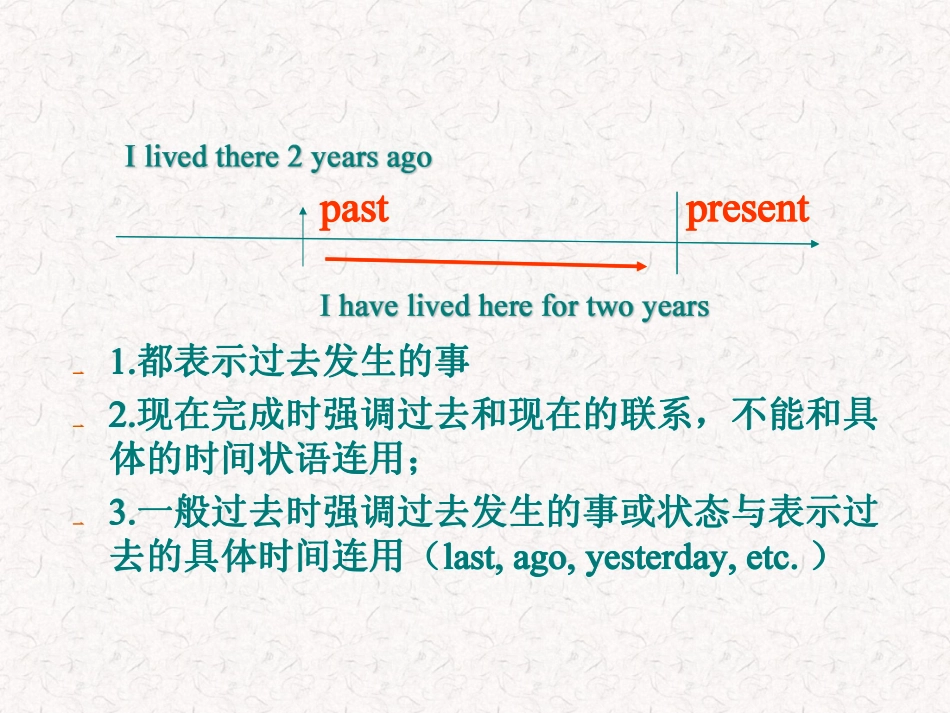表示过去发生的某一动作对现在造成的影响或产生的结果.现在完成时这一时态强调是过去动作与现在的联系,也就是强调现在的影响和结果.have/has + 过去分词v 1.都表示过去发生的事v 2.现在完成时强调过去和现在的联系,不能和具体的时间状语连用;v 3.一般过去时强调过去发生的事或状态与表示过去的具体时间连用(last, ago, yesterday, etc. )presentpasteg.1. He had his breakfast at 6:00 He has had his breakfast. 2. When did you come here? I watched the football match on TV at 9:00. before, by now (so far), once, twice…, just, recently yet(否/疑), already(肯), ever, never, all one’s life , in /during the past /last 5 years, have hadarrivedhasbeen tohasseensawhave been builtv 用法二: for+段时间 since+点时间 since+句子(过去时)E.g. Kate has lived here for 3 years. Kate has lived here since 3 years ago. Kate has lived here since she came to China.表示过去某个时间开始的动作或存在的状态,一直持续到现在并可能还将持续下去。动词使用延续性动词。常与for或since引导的时间连用v arrive/come/go to die v become a borrowv Leave/ move v buy openv join v start/begin finish/ endv catch a cold get up v get to know get out v close wake upv go to sleepv become interested in be in be deadhavekeepbe away / be out be abe in/a member ofbe openbe onbe overhave a coldbe upknowbe outbe closedbe awakebe asleep/ sleepbe interested inv His father has died. (for 2 years)v The football match has begun.(since9:00a.m)v The twins have joined the army. (since they are 18years old)His father has been dead for 2 years.The football match has been on since 9:00 a.m.The twins have been soldiers/ been in the army since they are 18years old. eg. 他死了两年了:He died two years ago.He has been dead for two years /since two years ago It is/ has been two years since he died.Two years has passed since h...


